Choosing the perfect setting for your destination wedding is a thrilling adventure, but deciding on the type of ceremony can sometimes be a tad confusing. Europe, with its breathtaking landscapes and diverse cultural heritage, offers an endless array of possibilities for the backdrop of your big day. But whether you envision a majestic castle, a pristine beach, or a lavender field as the setting, the type of ceremony you select must align with your priorities and preferences.
Before diving into the types of ceremonies and their implications, start by asking yourself this:
What is your number one priority? Is it having a certain type of ceremony or achieving that dreamy scenery you’ve been fantasizing about? Once you have this question answered, the process becomes a lot simpler.
In this blog, we delve into three types of ceremonies you might consider for your destination wedding: legal, religious, and symbolic. Each type comes with its own set of conditions and flexibilities, which we’ll discuss in detail.
1. The Legal Ceremony
A legal ceremony is where the couple is officially married under the law of the country where the wedding takes place. This means you’ll have to meet the legal requirements of the particular country, which can range from residency requirements to necessary documentation.
If you are keen on a legal ceremony, it’s essential to research the marriage laws of the country where you plan to have your wedding. Some European countries have stringent requirements. For instance, France requires a couple to reside in the country for at least 40 days before the wedding. That could make it a bit challenging if you’re planning a quick getaway. Also, e.g. for American and Australian citizens, getting legally married in Italy requires some additional documents which can only be obtained at their countries’ consulates in Italy – which makes the couple’s presence in Italy at least a few days prior to the wedding a must.
Other countries, like Austria, Greece or Denmark for example have an easier process and no residence requirement, making it possible for the wedding planner to submit paperwork on behalf of the couple. This means that the couple doesn’t necessarily have to plan an additional trip to the registry office before the wedding.
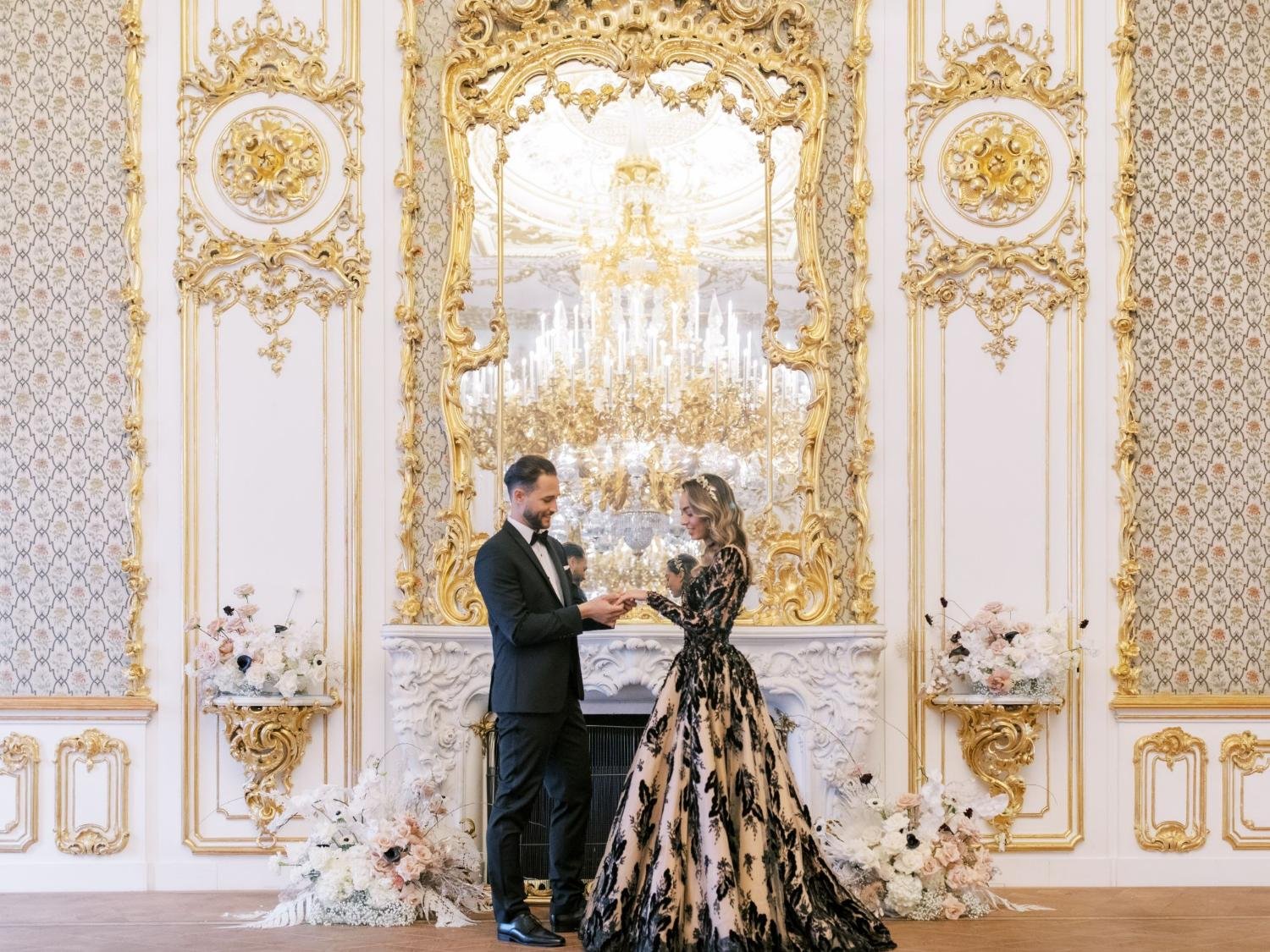
The Religious Ceremony
A religious ceremony aligns with the traditional rites and rituals of a specific religion. It usually takes place in a church, synagogue, mosque, or temple, depending on the couple’s faith.
Remember, in Europe, religious ceremonies are often not recognized as legally binding unless accompanied by a civil ceremony. This means you might need to have a civil marriage in your home country or a civil ceremony before your religious ceremony in the destination country.
Do keep in mind that some churches or religious institutions might have their own set of requirements, like proof of faith or pre-marital counseling.
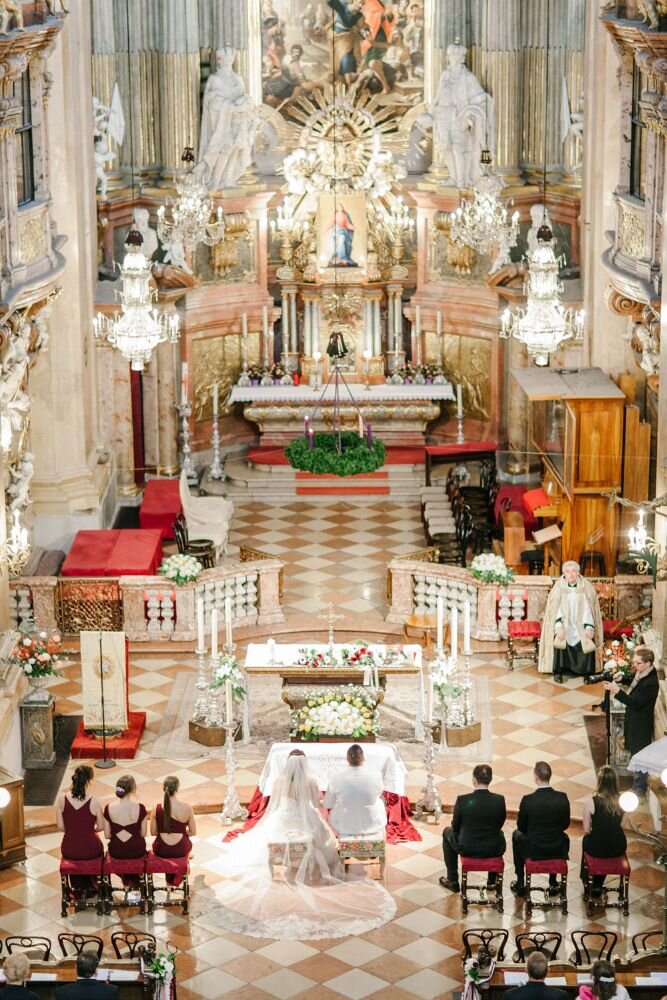
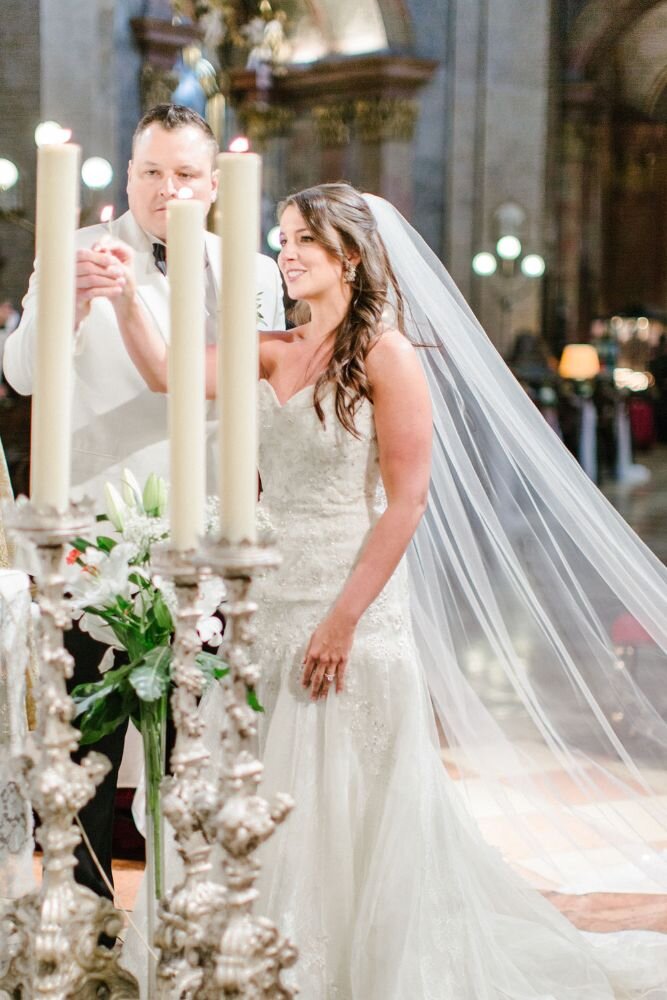
3. The Symbolic Ceremony
A symbolic ceremony is, by far, the most flexible of the three. You can personalize it according to your desires and without the constraints of legal or religious requirements. It is, however, not legally binding.
Symbolic ceremonies are perfect for couples who prioritize the experience and the setting of their wedding. They allow you to choose an unconventional location – like atop a mountain, on a sunny beach, or in a grand palace – and customize the rituals, vows, and structure of the ceremony.
You might opt for a legal marriage in your home country before heading to your destination for the symbolic wedding. That way, you get the best of both worlds – a legally recognized marriage and a memorable, tailored celebration in your dream location.
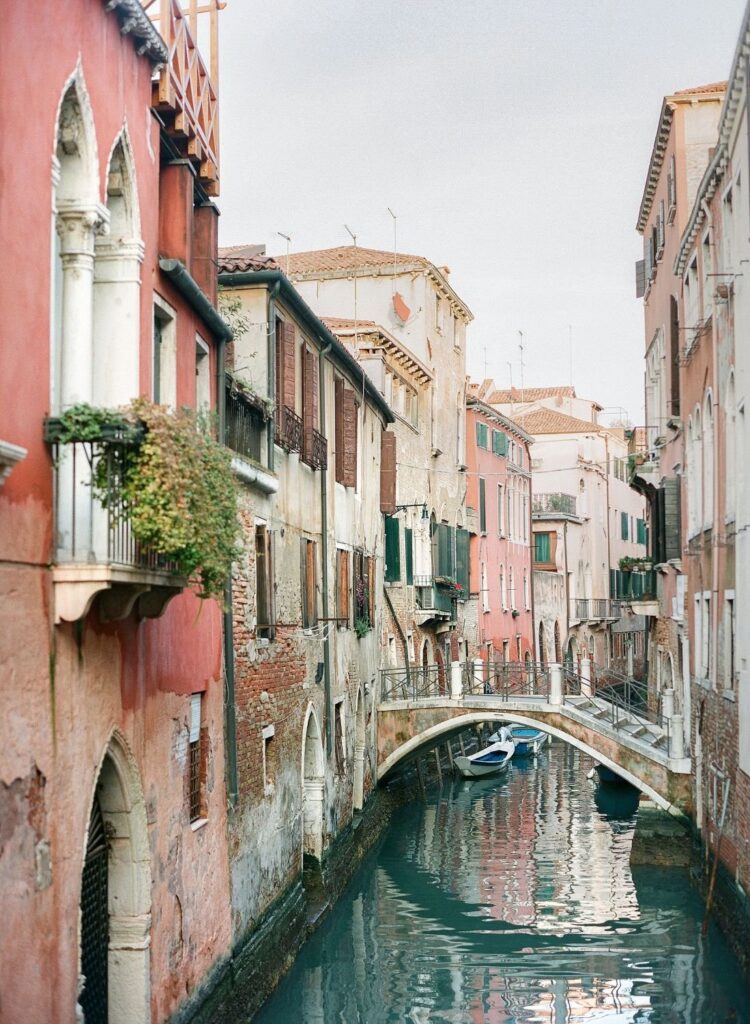
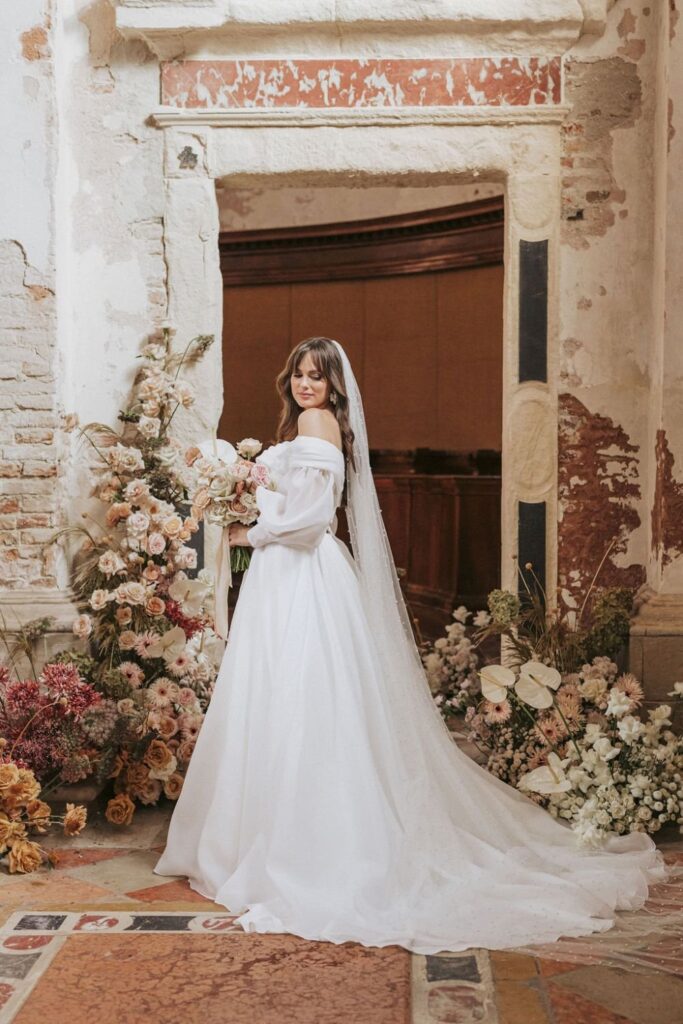
Choosing the type of ceremony for your destination wedding is a personal decision that should align with your priorities, beliefs, and dreams. Take the time to consider your options and discuss them with your partner. Whether you opt for a legal, religious, or symbolic ceremony, remember that the most important thing is that your day feels true to who you are as a couple. Europe, with its rich history and diverse landscapes, is waiting to offer you a canvas for the wedding of your dreams.
Of course, a wedding planner with extensive experience in destination weddings in Europe can provide invaluable guidance. They’ll have the necessary expertise and knowledge to help you navigate the complexities of different types of ceremonies and their implications in various European countries.
Let’s plan your destination wedding in Europe!
We can’t wait to hear all about your vision and discuss options.
Fill out our contact form and we’ll get back to you in no time!